Research Faculty
Full-time Research Faculty
Cardiac Surgery

Sepideh Hagvall, PhD
Dr. Srivatsan’s focus of research interest is in Human Genetics and Cancer Therapeutics. He obtained his Ph.D. in Biochemistry from the Indian Institute of Science, Bangalore, India. He had cell and tumor biology training in Dr. Eric Stanbridge’s laboratory at UC Irvine. He worked in the Department of Pediatrics at UCLA for eight years and joined the Surgical faculty at UCLA in 1995. Since then, he has trained a number of undergraduate, and medical students and surgical residents.
General Surgery
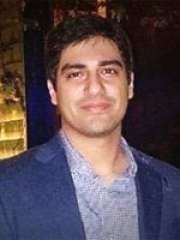
Adam A. Abiri, PhD

Grace Chang, MD
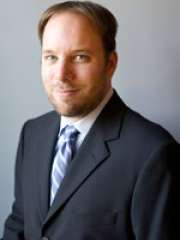
Martin Culjat, MD
Dr. Culjat specializes in ultrasound transducers and systems, where he is involved in a number of active research efforts focusing on transurethral ultrasound catheters, dental ultrasound systems, flexible ultrasound transducers, robotically-controlled ultrasound systems, and focused ultrasound neuromodulation. He has developed various research projects related to haptic sensing for surgical robotics, lower-limb amputees, and balance disorders.
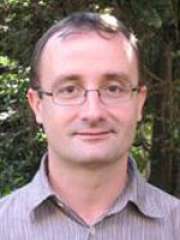
Guido Eibl, MD
Dr. Eibl studies the mechanisms of diet-induced obesity on pancreatic cancer development. In particular, he studies the role of inflammation using in vitro cell culture and genetically engineered animal models. In addition, Dr. Eibl is investigating the potential preventive effect of fish oil on pancreatic carcinogenesis.
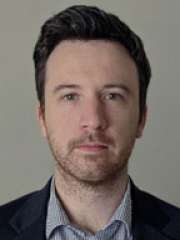
Rory Geoghegan, PhD
Dr. Geoghegan is a project scientist in the departments of Urology and Surgery. He has a bachelors degree in mechanical engineering (University College Dublin, 2010), a master’s degree in biomedical engineering (Imperial College London, 2011) and a doctorate in bioengineering (University of California, Los Angeles, 2019).
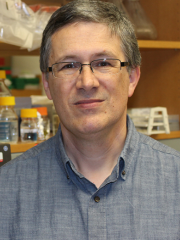
Miklos Sahin-Toth, M.D, Ph.D.
Dr. Sahin-Toth is the Garry Shandling Chair in Pancreatic Diseases and the Editor-in-Chief of the journal Pancreatology. His group studies the role of genetic risk factors in pancreatic diseases with a focus on hereditary chronic pancreatitis and the role of pancreatitis in the development of pancreatic cancer. These investigations utilize state-of-the-art preclinical mouse models to understand how mutations in digestive enzymes trigger pancreatitis and increase the risk for pancreatic cancer.
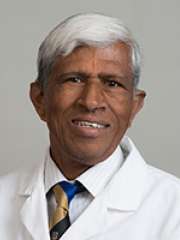
Eri Srivatsan, MD
Dr. Srivatsan’s focus of research is Human Genetics and Cancer. He works on Chemo-radiation resistance in head and neck cancer. He obtained his Ph.D. in Biochemistry from the Indian Institute of Science, Bangalore, India, and his pod-doctoral training at UC Irvine by Dr. Eric Stanbridge. He joined the UCLA Surgical faculty in 1995 and has trained undergraduates, medical students, and surgical residents.
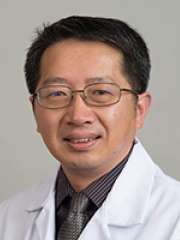
Guisheng Zhou, MD
Liver Transplantation
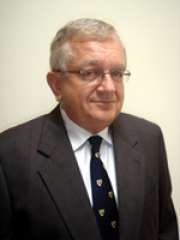
Jerzy W. Kupiec-Weglinski, MD
Dr. Kupiec-Weglinski is the Director of Dumont-UCLA Transplantation Research Laboratories and the Vice-Chair of Basic Research. His group has been working on improving the quality of donor organs through innate - adaptive immune cross-regulation in ischemia and reperfusion injury.
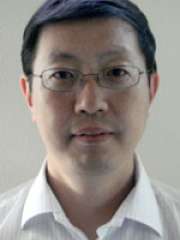
Yuan Zhai, MD, PhD
Dr. Yuan Zhai, PhD is an Associate Professor in the Department of Surgery at David Geffen School of Medicine at UCLA. His laboratory is interested in immunological mechanisms of IRI pathogenesis, including roles of T cells, Toll-like receptors, intracellular signaling pathways leading to the activation of pro-inflammatory gene transcriptions and their regulation, and roles of metabolic stresses.
Plastic Surgery
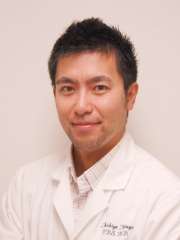
Akishige Hokugo, DDS, PhD
Dr. Hokugo is the Research Director of the Regenerative Bioengineering and Repair Laboratory at UCLA Plastic and Reconstructive Surgery. His research focuses on developing new therapies for patients suffering from defects of oral and craniofacial tissues through tissue engineering techniques utilizing a variety of biomaterials, biological molecules, and cells.

Justine C. Lee, MD, PhD
Dr. Lee is actively involved both basic science and clinical research with funding from the United States Department of Veterans Affairs, the Plastic Surgery Foundation, and the Jean Perkins Foundation. In her laboratory, Dr. Lee’s primary research focus is on regenerative technologies for skeletal defects. By combining biomimetic scaffolds and stem cells, they aim to identify novel methods and mechanisms for repair of bony defects from congenital, post-traumatic, and post-oncologic causes.
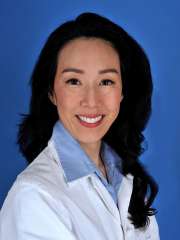
Chia Soo, MD
Dr. Soo is the Vice Chair for Research at the UCLA Division of Plastic and Reconstructive Surgery and Research Director for Operation Mend, an UCLA organization that offers reconstructive surgery to soldiers wounded in Iraq and Afghanistan. Her research investigates bone and skin regenerative medicines and tissue engineering technologies.
Surgical Oncology
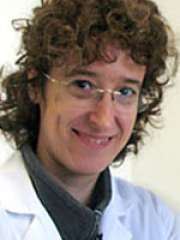
Begonya Comin-Anduix, PhD
Dr. Comin-Anduix’s research focuses on optimizing immune monitoring techniques and studying approaches to enhance the T-cell responses to human metastatic melanoma. She studies the optimization, development, and validation of quantitative immune monitoring methods at a single cell level. Dr. Comin-Anduix collaborates with engineers from the California Institute of Technology to microscale quantitative immune monitoring methods optimized in her research.
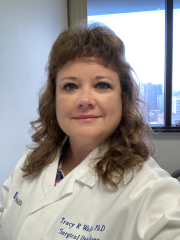
Tracy Daniels-Wells, PhD
Dr. Tracy R. Daniels-Wells has Ph.D. in Microbiology & Molecular Genetics from Loma Linda University. Dr. Wells joined UCLA in 2005. She is an Adjunct Associate Professor and works as a part of Dr. Penichet’s research team. Her work focuses on the development of new antibody-based therapeutics for the treatment of various cancers and encompasses the field of AllergoOncology.
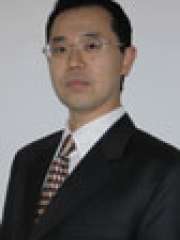
Richard Koya, MD, PhD
Dr. Koya conducts laboratory and clinical research focused on immunotherapy and targeted specific therapy of cancer. Dr. Koya’s research interests include gene vector design, molecular imaging, new approaches to enhance anti-cancer T-lymphocyte responses, advanced immune monitoring and understanding of cancer biology for therapeutic translation.
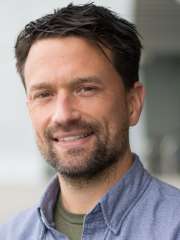
Jason Link, Ph.D.
Dr. Link investigates the causes behind long-term survival with lung metastatic pancreatic adenocarcinoma. Patients with this exceptional outcome have tumors that are sensitive to DNA damage and continuously generate effective tumor immunity. The mechanisms behind this rare, beneficial response – and whether they can be induced therapeutically – are of critical relevance to the great majority of patients with tragically aggressive pancreatic cancer.
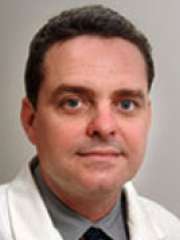
Manuel Penichet, MD, PhD
Dr. Penichet's research involves concentrating molecules that stimulate the immune system in the tumor environment, thus training the immune system to recognize cancer cells as foreign and destroy them. Since 1996, Dr. Penichet has developed a family of antibody fusion proteins to be used as direct anti-tumor agents and as adjuvant of cancer vaccines.
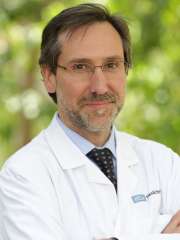
Antoni Ribas, MD
Dr. Antoni Ribas's research is aimed at how the immune system can be effectively used to treat cancer, with a focus on malignant melanoma. His work spans from laboratory research to patients, including pre-clinical and clinical development of CTLA4 blocking monoclonal antibodies, dendritic cell vaccines, genetically engineered antitumor lymphocytes and use of targeted small molecule inhibitors to pharmacologically sensitize cancer cells to immunotherapy.
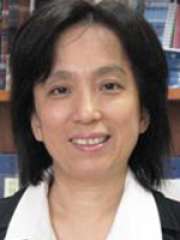
Cho-Lea Tso, PhD
Dr. Cho-Lea Tso’s research focuses on characterizing and targeting glioblastoma stem cells (GSC), which are a previously unrecognized subpopulation within the tumor mass and are hypothesized to be responsible for tumor development and tumor recurrence. Her Lab has established several patient-derived GSC lines and animal models, allowing them to characterize properties of GSC at cellular, molecular, functional, and genomic levels.
Vascular Surgery

Karina S. Kanamori Mendes, MD
Dr. Kanamori’s research involves investigations in NAD+ metabolism and NAD-boosting therapies in the context of bidirectional cardio-renal relationship of HF and AVF/AVG creation, AVF maturation and elucidating the correlation of ‘inflammaging’ process to pathophysiological mechanisms of vascular and cardiovascular diseases. She plans to expand her research focused on clinical trials and patient care-centered research in vascular and cardiovascular diseases to optimize patient care.